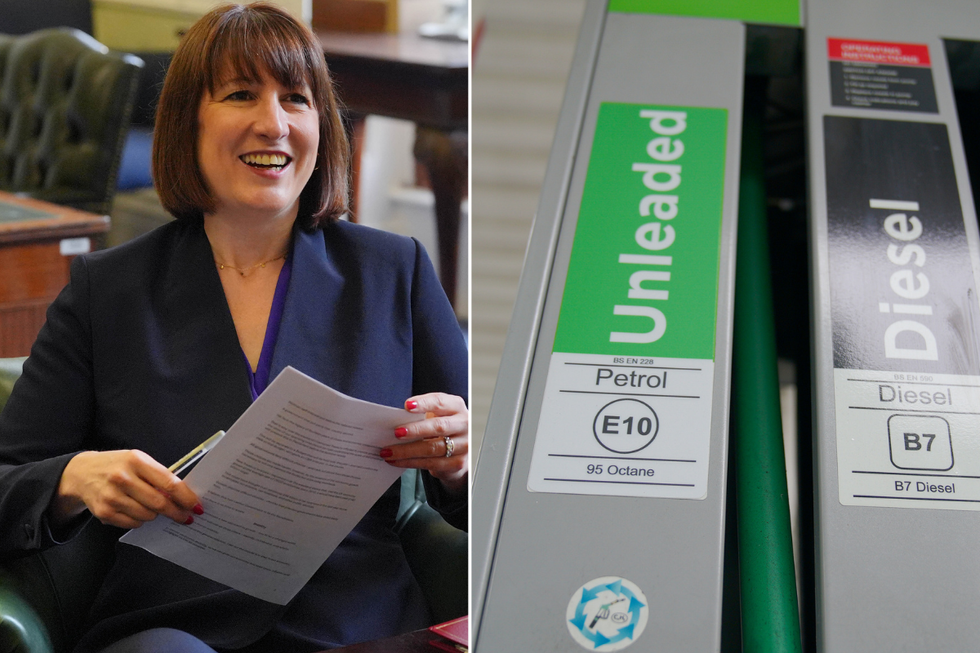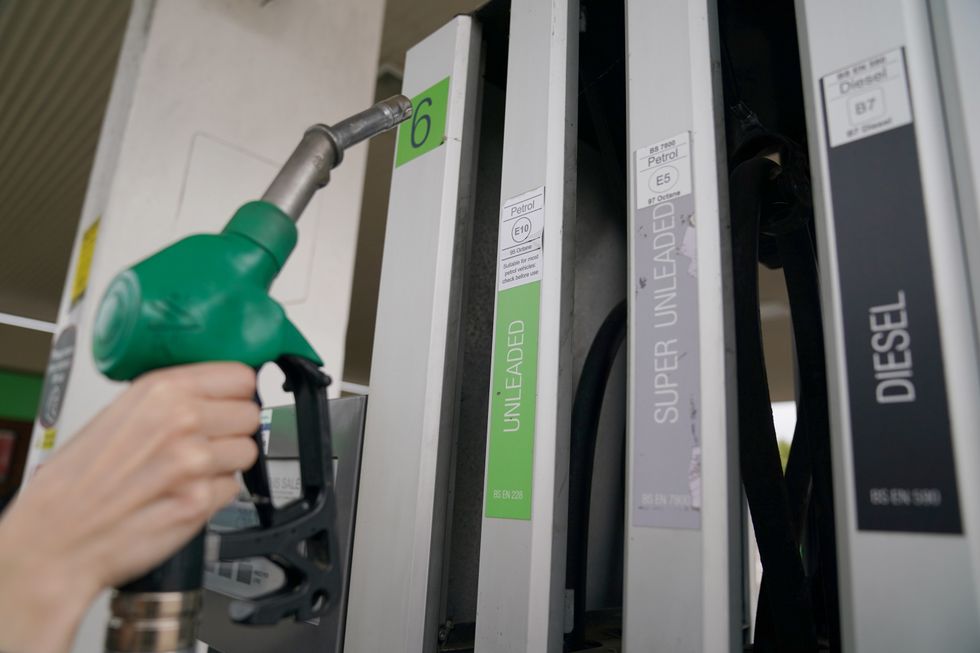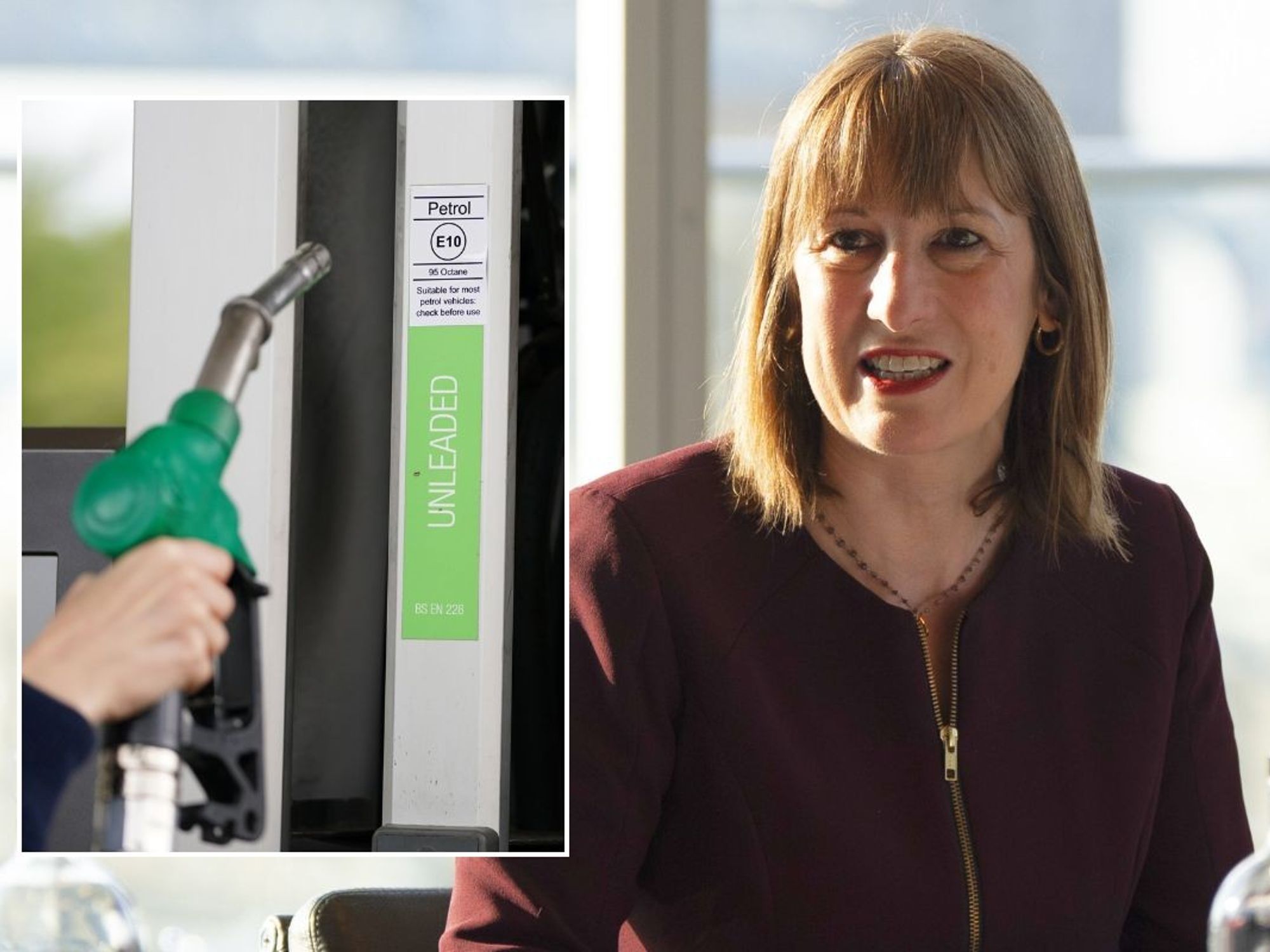Rachel Reeves could raise fuel duty by 10p to meet Starmer’s key defence spending goals

Tax experts have warned that increases to fuel duty may be a viable option to help fund new projects
Don't Miss
Most Read
Labour could be forced to increase fuel duty to 10p in order to meet new defence and transport spending goals announced this month.
It comes after the Prime Minister Keir Starmer announced plans to increase the UK’s defence sector alongside new transport projects in the north of England.
But, to pay for new projects in defence and transport, experts have warned that the Government may need to undertake tough decisions, with fuel duty now being considered as a potential revenue stream.
In order to meet the £6billion defence spending budget, tax experts have warned that two potential options could occur.
Do you have a story you'd like to share? Get in touch by emailing motoring@gbnews.uk

The fuel duty freeze will expire in March next year, with drivers seeing bills increase by £50
| PAOne of them looks at Rachel Reeves ending the fuel duty freeze at the Autumn Budget, while the other involves seeing fuel duty increase to 10p per litre.
Robert Salter, a director at Blick Rothenberg, told London Loves Business: "The Prime Minister Keir Starmer announced an increase in the UK’s defence budget, and the Chancellor, Rachel Reeves, has said there will be an increase in transport project spending.
"But the money has to come from somewhere, and that somewhere is taxes. The Government has a few options when it comes to generating a higher tax take."
He detailed how ending the temporary 5p per litre cut to fuel duty, which was introduced in 2022, could help ease financial pressures on the Treasury.
The 5p per litre fuel duty has remained frozen for the past three years, with it due to end in March 2026. Experts have suggested that the "temporary easement" for motorists costs £2billion per annum, yet only saves drivers £50.
Salter added: "But the Government could go further and raise it by say 10p per litre, which would potentially raise £4billion.
"But practically, the Government needs to look at alternative options for raising revenue from motorists, as fuel duty will be coming down over the next few years, as more and more people move to electric vehicles or at least hybrids."
Even with the freeze, fuel duty brings in £25billion each year, marking a significant source of receipts for the Government.
LATEST DEVELOPMENTS:
As more drivers give up petrol and diesel cars, the expert warned there is a risk that raising fuel duty too sharply could push drivers to buy EVs before a suitable tax structure is put in place.
Under the Zero Emission Vehicle (ZEV) mandate, all new car sales will need to be electric by 2030, with at least 28 per cent of sales required to be electric by the end of this year.
While the mandate hopes to accelerate the UK’s drive towards net zero, the car sector has been calling on the Government to introduce more incentives to help motorists give up petrol and diesel cars.
The current support package has included more grants to help drivers install at-home electric car chargers, as well as favourable car tax rates with EV owners paying the lowest band of Vehicle Excise Duty.
 Drivers could see fuel duty rates rise in the October Budget | PA
Drivers could see fuel duty rates rise in the October Budget | PAThe latest HMRC monthly tax receipts revealed that due to more drivers moving towards electric vehicles, fuel duty remained £200million lower than last year at £24.6billion.
Salter stated that if the Government were to raise fuel duty to 10p, "it could accelerate the move to electric vehicles before the Government can put in alternative, practical plans to raise equivalent revenues from things like road tolls".
The warning echoes similar feelings by Sheena McGuinness, Co-Head of Energy and Natural Resources at RSM UK, who warned of the impact fuel duty blackholes will have.
She shared: "While the tax take for the majority of other taxes has increased, fuel duty receipts continue to fall. This decline is even more stark when tax revenues on average are increasing steadily, with the 2023-24 tax year seeing an annual uptick of 5.3 per cent."











